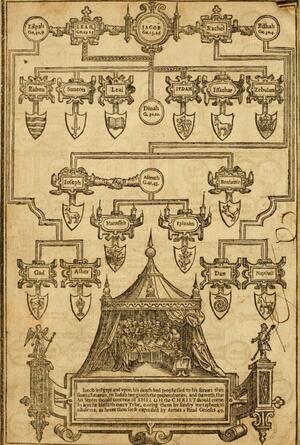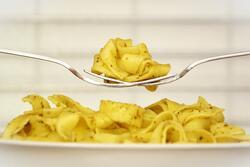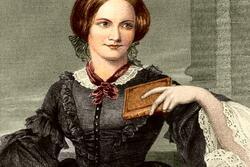Claiming Bilhah and Zilpah
One afternoon when I was in the 7th grade, my Hebrew tutor, Sarah, was wearing a shirt that read: “Sarah & Rebecca & Rachel & Leah & Bilhah & Zilpah.” The first four names, the names of the matriarchs, were familiar to me. I had heard these names for as long as I could remember at temple, but I had never heard the last two names before. When I asked Sarah who they were, I didn’t know that her answer would be my introduction to the intersection between Judaism and feminism, and would influence how I thought about my role in relation to both.
Sarah explained to me that Bilhah and Zilpah were handmaidens of Rachel and Leah who were given to the sisters by their father. Bilhah and Zilpah gave birth to four sons—Naphtali, Dan, Asher, and Gad—fathered by Jacob, who became the heads of four of the Twelve Tribes of Israel. Bilhah and Zilpah were slaves, not wives of a patriarch, but their descendants eventually became the Jewish people. For this reason, some modern Jewish feminists have reclaimed Bilhah and Zilpah as matriarchs.
For me, this was a revelation. I have long identified as a feminist and have always been interested in Judaism, but before this, I had never really considered how the two could overlap. At first, it almost seemed wrong for feminists to make their own assertions about thousand-year-old practices, but then I thought more about the fact that the Torah was written by men, which meant our most important text was biased from inception. I thought about how there are two versions of the Amidah in some prayer books, one including the first four matriarchs’ names, and one without them. Obviously, at some point, some Jews decided that the matriarchs needed to be acknowledged in prayer. We could continue this tradition by claiming Bilhah and Zilpah as matriarchs. We could defy the patriarchal constraints of the Torah, and highlight significant women regardless of their status.
Coming to this realization was inspiring, but it also reminded me of the upsetting reality of the patriarchal nature of Judaism. I had always thought of Jewish spaces as empowering ones; most of the people who bolstered my Jewish education were women, including my rabbi. For me, synagogue was always the place where everyone was truly equal, because my community made such an effort to be inclusive and accepting. Gender was never an issue. Reflecting on this, I now recognize that it was Jewish feminists who have made Judaism more equal for me. It’s my job, as a woman and as a feminist, to continue to integrate feminism into Judaism.
As time has passed, I’ve learned about other people who’ve successfully integrated feminism into their Judaism, the way I want to. I learned that Miriam hadn’t always been recognized at our Passover seders. I learned that there weren’t always the more progressive Jewish sects that allow women to wear tallises or kippas or to become rabbis. I came to realize that being a Jewish feminist means elevating women, those from our sacred texts who have been forgotten like Bilhah and Zilpah, and Jewish women today.
Now, I try to keep Bilhah and Zilpah in mind in my daily life. To me, they are emblematic of all the women who have been left out of and left behind by history. This pushes me to actively seek out women who have been overlooked by our tradition, whether from the Torah or from more recent history. And my goal, at least for now, is to continue the act of reclaiming these women, and making them known.
This piece was written as part of JWA’s Rising Voices Fellowship.








Thank you for this important reflection. A couple of comments... Aren't people recognized as Jews through their mothers? If so, were the children of Bilhah and Zilpah were not Jewish? T
oo, from a feminist standpoint, can we consider the implied non consensual nature of sex with their masters as rape?
Since Zilpha and Bilhah were slaves of Laban, the Hebrew (Gen.29:6,24,29), therefore both the slaves were not Hebrews! If that is so, then they were an Egyptians, just like Hagar, the slave of Abraham (Gen.16:1,3). Abraham and Hagar bore only one son who was Ishmael (Gen.16:11,15). Bilhah and Jacob had two sons: Dan and Naphtali while Zilpha (Gen.30:1-8) and Jacob had sons: Gad and Assher (Gen.30:9-13). If this is so, then all those sons were not pure Hebrews but half-Hebrews and half-Egyptians [Gentiles], weren't they? Also, during exodus, the Israelites who came out from Egypt were not pure Hebrews blood but were mixture of blood race such as that of the Egyptians! (Exodus 12:37,38). As a matter of fact, in the wilderness, there was this Egyptian mestizo son whose mother was Shelomit, daughter of Debri from the tribe of Dan. (Lev.24:10-16). Therefore, the Ten Commandments were not given for the Hebrews only but as well as for the Gentiles also! What do you think?
I had never heard of them either only Hagar.
Zilpah is referenced in the genealogy in Genesis 46:18. Bilah is cited a few verses later in verse 25 of the same genealogy. With that I think we can say Zilpah and Bilah are matriarchs. Wilda Gafney in her book Womanist Midrash writes movingly, albeit briefly, on Zilpah and Bilah.
Are there any writings of the backgrounds of Bilhah and Zilpah? I know they were slaves, therefore deprived of a lot, even though they were the mothers of four of the tribes. I am looking to do research on the women Bilhah and Zilpah. Can you direct me to anything about their lineage?
Their children did not become jews. Only the tribe of Judah are Jews. They were however mothers of 4 other tribes of Israel. Leah was the mother of Judah.
Thank you. 💕. This effort is what has been missing from the feminist movement.
What a lovely, thoughtful, and inspiring piece. Thank you for sharing it with us.
This is beautiful and thoughtful writing, Josie. Particularly moving to hear from a young woman. I do not take women's rights or my Judaism for granted and explore both in my daily life as well.